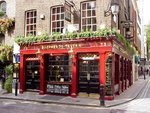Joe Ross
Active member
- Messages
- 192
- Likes
- 36
This question was sent to me from one of our students:
Hey Joe! I am still trading the full S&P contract, and I am calling straight to a trade desk on the floor. What is the role of a local in the market? Can I use one? I never get positive slippage from the floor broker my FCM is using. Is this right?
A trading friend of mine once said: “a local" is a trader who will not take a fifty-fifty proposition unless he gets the hyphen between the fifties.”
The hyphen is called "the edge" in the pit, and represents the difference between the bid and ask prices. Locals can trade a contract for less than three dollars a piece. A minimum fluctuation spread in the S&P is $25, and the edge is worth $22 per contract, the difference between winning and losing.
Locals are the best traders for short intraday swings, and usually enter a market after major buying or selling pressures have been exhausted by powerful funds and commercials. Without the local traders the market would not function efficiently, because locals provide the majority of liquidity necessary for traders to obtain fills.
It is not likely that you will find a local who is willing to handle your trades, but it is worth a try. Locals generally trade only their own account and do not trade for anyone else. Try to contact the pit chairman to see if he can direct you to a local who is willing to handle your account. But be careful that he doesn’t use your account to benefit himself.
Typically, you will need to find a floor broker to handle your account down on the floor. If you never experience positive slippage from a floor broker, it means he gives up the edge and does not work your order. Get rid of him. Many brokers kick back points on orders, back and forth in a practice that is illegal, but cannot be monitored.
Hey Joe! I am still trading the full S&P contract, and I am calling straight to a trade desk on the floor. What is the role of a local in the market? Can I use one? I never get positive slippage from the floor broker my FCM is using. Is this right?
A trading friend of mine once said: “a local" is a trader who will not take a fifty-fifty proposition unless he gets the hyphen between the fifties.”
The hyphen is called "the edge" in the pit, and represents the difference between the bid and ask prices. Locals can trade a contract for less than three dollars a piece. A minimum fluctuation spread in the S&P is $25, and the edge is worth $22 per contract, the difference between winning and losing.
Locals are the best traders for short intraday swings, and usually enter a market after major buying or selling pressures have been exhausted by powerful funds and commercials. Without the local traders the market would not function efficiently, because locals provide the majority of liquidity necessary for traders to obtain fills.
It is not likely that you will find a local who is willing to handle your trades, but it is worth a try. Locals generally trade only their own account and do not trade for anyone else. Try to contact the pit chairman to see if he can direct you to a local who is willing to handle your account. But be careful that he doesn’t use your account to benefit himself.
Typically, you will need to find a floor broker to handle your account down on the floor. If you never experience positive slippage from a floor broker, it means he gives up the edge and does not work your order. Get rid of him. Many brokers kick back points on orders, back and forth in a practice that is illegal, but cannot be monitored.

